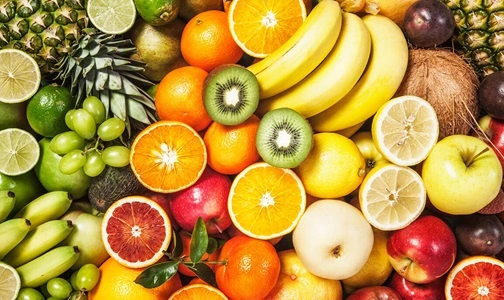Georgia, best known for its peaches and peanuts, is also a significant player when it comes to potatoes. Potatoes, a versatile crop that thrives in various climates, have gained popularity in Georgia, contributing to the local economy and agriculture. From innovative farming practices to unique potato varieties, the state’s potato industry has made notable strides. Here are over ten interesting and up-to-date facts about potatoes in Georgia that showcase how this staple crop has grown in the Peach State.

1. Potato Production Is Expanding in Georgia
While potatoes aren’t traditionally associated with Georgia, the state has seen increased potato production in recent years. Known for its rich, loamy soils and favorable climate, Georgia has become a viable area for growing potatoes. Farmers in the state are expanding their potato crops to meet growing demand, especially for varieties that do well in warmer climates, positioning Georgia as an up-and-coming potato-producing region in the U.S.
2. Georgia Potatoes Are Grown Primarily for Local Markets
Most of Georgia’s potatoes are grown for local consumption, supplying nearby markets and grocery stores. By focusing on local sales, Georgia potato farmers help reduce transportation costs and provide fresher produce to residents. Farmers’ markets throughout the state often carry freshly harvested Georgia potatoes, contributing to the state’s “farm-to-table” movement and promoting local agriculture.
3. Vidalia Sweet Potatoes Are on the Rise
Georgia’s Vidalia region is famous for its sweet onions, but it’s also gaining recognition for its sweet potatoes. Vidalia sweet potatoes have a mild, sugary flavor and vibrant orange color, making them popular among Georgians. While technically a different plant species than white potatoes, sweet potatoes thrive in Georgia’s warm climate and have become a staple in many Southern dishes.
4. Innovative Potato Farming Practices
Georgia’s potato farmers have embraced innovative practices to improve crop quality and yields. Many use crop rotation to maintain soil health and prevent diseases that can affect potatoes. Farmers are also adopting sustainable practices, like using organic fertilizers and introducing integrated pest management (IPM) techniques, to produce healthier potatoes while minimizing environmental impact. The push toward eco-friendly agriculture has enhanced Georgia’s reputation as a state that values sustainable farming.
5. Potatoes Are an Important Crop for Georgia’s Farm-to-School Programs
Georgia is dedicated to bringing fresh, locally grown produce to school cafeterias, and potatoes are one of the crops highlighted in the state’s farm-to-school programs. By working with local farmers, schools provide students with fresh, nutritious meals while supporting Georgia agriculture. Potatoes are served in a variety of forms—baked, mashed, and even roasted—which allows students to enjoy this nutritious vegetable in many delicious ways.
6. Georgia Potato Festivals Are Growing in Popularity
Though not as famous as peach or peanut festivals, Georgia hosts several potato festivals to celebrate the crop’s role in the state’s agriculture. Events like the annual Sweet Potato Festival in Ocilla feature potato-themed activities, cooking competitions, and tastings, offering a fun way for residents to learn about the potato industry. These festivals are great opportunities for locals to enjoy potato dishes, learn more about farming, and appreciate the hard work of Georgia’s farmers.
7. Potatoes Are Georgia’s “Off-Season” Crop
For many Georgia farmers, potatoes serve as a profitable “off-season” crop. While summer months are dedicated to growing fruits and vegetables like tomatoes and watermelons, farmers often turn to potatoes in late fall and early spring. Georgia’s climate allows farmers to grow potatoes at times when other states can’t, helping them fill market gaps and providing a steady supply of fresh potatoes to nearby regions.
8. The Demand for Organic Potatoes Is Increasing
With the growing demand for organic produce, Georgia farmers are increasing their production of organic potatoes. Organic farming practices align with Georgia’s sustainable agriculture goals, and organic potatoes are especially popular among health-conscious consumers. Local grocery stores and farmers’ markets are seeing a rise in sales of organic potatoes, and some farms now specialize exclusively in organic produce, catering to this market.
9. Georgia Grows Both White and Red Potatoes
Georgia farmers produce a variety of potato types, including white and red potatoes. While white potatoes are popular for their creamy texture in mashed and baked dishes, red potatoes are prized for their firm, waxy texture, which holds up well in salads and stews. The diversity of potato types grown in Georgia allows farmers to meet the tastes and preferences of local consumers, who enjoy using different varieties in Southern-style recipes.
10. Georgia Potatoes Are Used in a Variety of Southern Dishes
Potatoes are a staple in many classic Southern dishes, from creamy mashed potatoes to potato salads and hearty stews. In Georgia, potatoes are often incorporated into traditional recipes like fried potato cakes, cheesy scalloped potatoes, and sweet potato casseroles. Restaurants across the state feature Georgia-grown potatoes in their dishes, giving diners a taste of locally sourced ingredients and showcasing the versatility of this humble vegetable.
11. Georgia Supports Research on Disease-Resistant Potato Varieties
Diseases such as potato blight can devastate potato crops, and Georgia’s agricultural researchers are working to develop disease-resistant potato varieties. The University of Georgia’s College of Agricultural and Environmental Sciences has been a leader in researching and breeding new potato strains. This research helps ensure that Georgia’s potato industry remains resilient against diseases and pests, protecting farmers’ livelihoods and enhancing crop yields.
12. Georgia’s Climate Allows for Early Potato Harvests
Due to its warm climate, Georgia has a unique advantage in the timing of potato harvests. Farmers can plant early in the season and often harvest potatoes by late spring, allowing them to reach the market ahead of northern growers. This early harvest gives Georgia potatoes a competitive edge and allows them to command premium prices at local markets and grocery stores, providing an economic boost to farmers.
13. Georgia’s Sweet Potatoes Play a Role in Health Initiatives
In addition to traditional potatoes, Georgia’s sweet potatoes are a valuable source of nutrients. Rich in vitamins A and C, fiber, and potassium, sweet potatoes are often incorporated into state-run health and nutrition programs. Georgia’s Department of Public Health has promoted sweet potatoes as part of a healthy diet, highlighting their benefits in reducing inflammation, supporting eye health, and providing sustained energy.
14. Growing Interest in Potato-Based Products
With the rise of potato-based products like chips, frozen fries, and even potato starch, Georgia’s potato industry is expanding to include value-added products. Small, local businesses are producing homemade chips and fries using Georgia-grown potatoes, and some even offer gourmet varieties with unique seasonings. This local focus on potato-based products supports the state’s economy and encourages consumers to buy Georgia-made foods.
15. Georgia’s Potato Farmers Are Adapting to Climate Change
Climate change presents challenges for farmers, including those in Georgia. With unpredictable weather patterns, Georgia’s potato farmers are adapting by using climate-resilient practices, such as drip irrigation, mulching, and choosing potato varieties that withstand heat and drought. These practices help farmers manage water usage efficiently and protect their crops from the effects of warmer temperatures. By adapting to climate change, Georgia’s potato farmers are ensuring the sustainability of their industry for years to come.
Conclusion
While potatoes may not be the first crop that comes to mind when thinking of Georgia, they play an increasingly important role in the state’s agriculture and economy. From farm-to-school programs and organic farming to innovative disease-resistant varieties, Georgia’s potato industry is thriving. The state’s commitment to sustainable agriculture, local consumption, and early harvests gives Georgia-grown potatoes a unique appeal. For anyone looking to support local agriculture and enjoy fresh, high-quality produce, Georgia’s potatoes are a delicious and nutritious choice that exemplifies the spirit of the Peach State’s evolving agricultural landscape.



